How to Get a Project Management Job With No Experience?
If you are reading this blog, you are probably wondering how to become a project manager. Otherwise, you may already be in a project management position, either through careful planning or by accident. Regardless of the path you’re considering or the one you’ve taken, there are advantages and challenges faced by both the accidental project manager and traditionally trained project manager. This post is aimed to help you thrive in your job duties, irrespective of the way you got here.
Over the years, the role of a project manager has transitioned. The project management job doesn’t only require professionals to have negotiation, communication, organizational, and leadership skills. But, they’re also involved in digital transformation and are instrumental in facilitating digital initiatives in their organization. If the question “how to get an entry-level project management job” is giving you sleepless nights, read further.
There are two paths professionals take to become a project manager. While some choose to become a project manager without any prior experience or relevant degree, others prefer formal training to become a certified project manager. Let’s start with knowing what a project manager does.
What Does It Take To Become a Project Manager?
Project management job titles and responsibilities vary slightly, depending on the organization and project type. In a nutshell, a project manager is responsible for planning, scoping, assigning, guiding, budgeting, controlling, and completing projects.
This means if you are good at seeing the steps necessary to complete complex projects and tasks while hitting deadlines, managing people, and organizing the workday down to the last minute, you probably have what it takes for this job.
Let’s break down the core skills a project management job requires:
- Communication
- Negotiation and leadership
- Risk management and problem-solving
- Attention to detail
- Time management
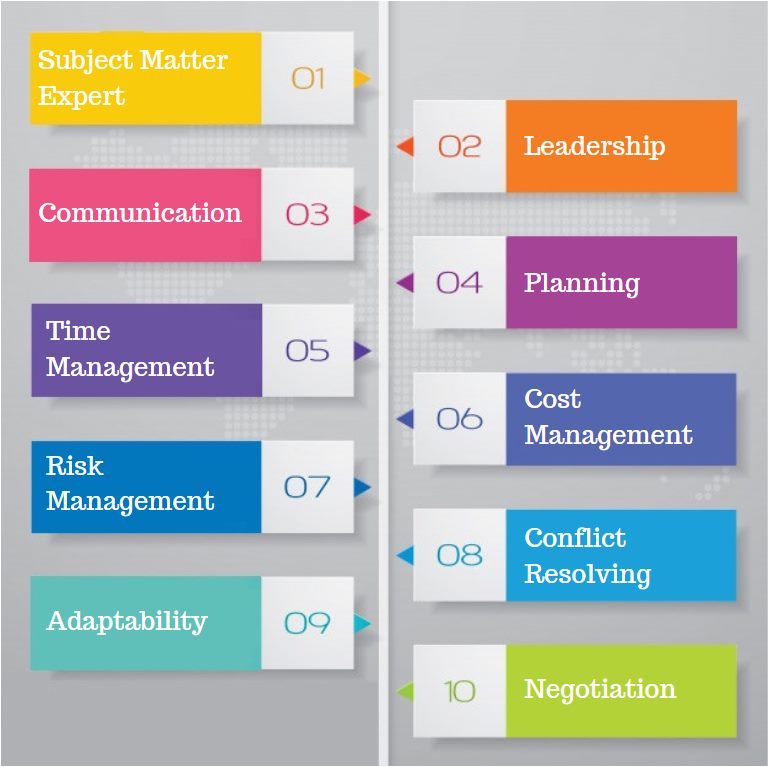
Source: GreyCampus
Seamless project management depends on your ability to:
- Establish a specific goal
- Formulate a full-proof plan to accomplish that goal
- Remain up-to-date about the team’s progress toward fulfilling the goal
No experience? No problem. Let’s walk you through the steps required to get the best project management job.
5 Steps to Becoming a Project Manager With No Experience
If you are a professional who wants to become a project manager without any formal degree or experience, take your training seriously.
It is common to find project managers in IT, construction, and finance industries who are managing teams without any formal degree or extensive experience. If you wish to follow the same path, here are the go-to steps.
1) Assess Your Experience — To start with, don’t write off your own professional experience. Because you haven’t worked in the same role before, doesn’t mean you lack the right skills. You would be surprised to know many key attributes you need to be a successful project manager can be developed in many ways. You may already be well versed in skills, such as leadership and time management from your previous jobs.
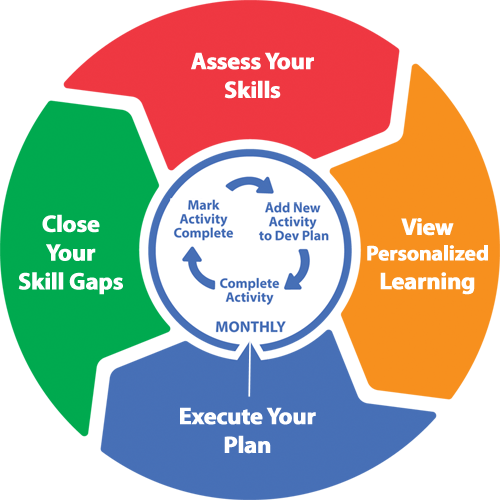
Source: SkillDirector
Key project management skills include:
- Time management
- Resource management
- Quality management
- Scope management
- Procurement management
- Stakeholder management
- Conflict management
Make a note of the projects you’ve led or been a part of, and compare the areas you’ve managed from the knowledge areas shared above. This gives you a sense of your hands-on experience versus the skills and job duties of a project manager.
Equipped with this information, you can evaluate the formal project management job titles and review their profiles, duties, and responsibilities. In short, gain a clear understanding of the project management skills you know, and then move to step two.
2) Identify and Fill Experience Gaps — Once you have identified which crucial project management skills you have, determine the gaps in your portfolio. Identify which skills you lack, and create a comprehensive plan to learn them. This will help you enhance your project management knowledge base and be more efficient in your work to land a rewarding project management job.
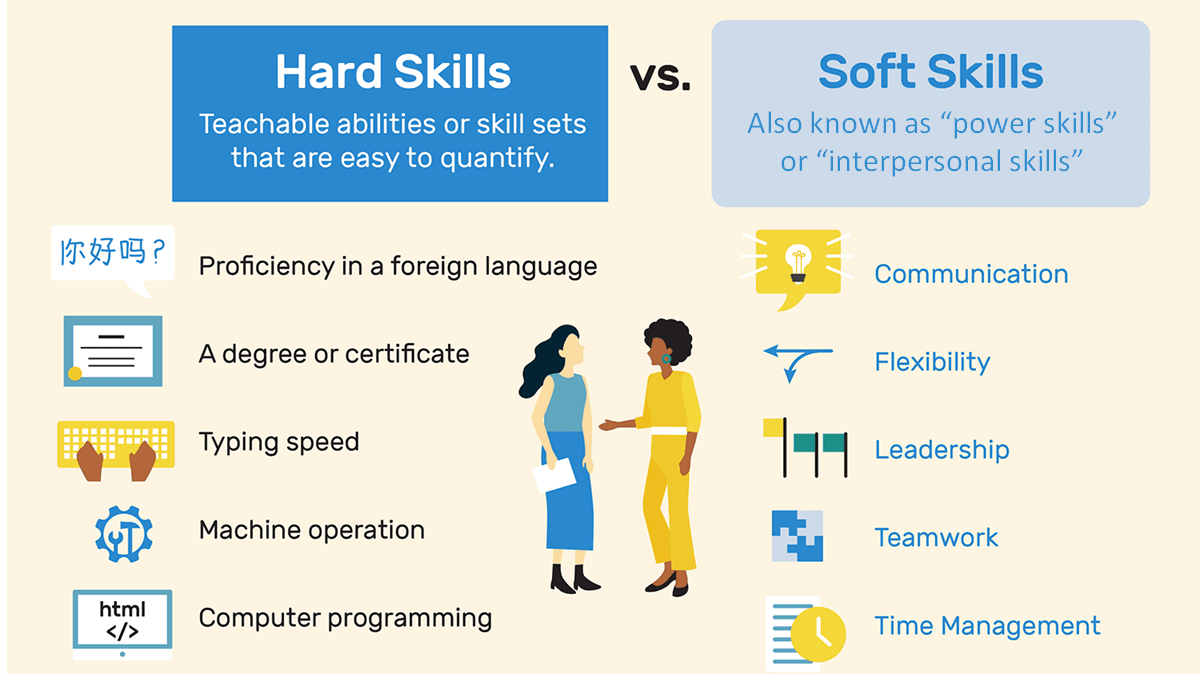
Source: PMPeople
Assess the knowledge and skills you need by answering these questions:
- In which areas do you need to build or refine your skills?
- Can you gain these skills with experience in your present role?
- Would you need to take a new role to learn them?
- Can you take on new responsibilities where you are now?
- Can you receive mentorship in your organization or from your professional network?
3) Hunt for New Opportunities — One safe way to get a job as a project manager is to get the right qualification. If you prefer self-guided learning with a formal structure, you can explore online learning platforms, such as GreyCampus, and take online project management courses.
Resume your informal training by exploring and understanding the best online project management online solutions, tools used by project managers, or diving deep into professional project management books. Make sure to capitalize on every learning opportunity and resource you can get your hands on.
4) Execute the Newly Learnt Concepts — Having only theoretical project management experience will do you no good. Find relevant opportunities to apply what you have learned, so you can leverage project management skills to the fullest. A project-based job role demands a lot of cooperation and communication between team members. Understand the intricacies of project management and become a better team member for a great start toward a project manager career. Keep exploring new project management software platforms to stay ahead of the curve.
5) Decide What's Next — While there are always new project management skills to develop, you will need to decide your next move. If your learning is self-guided, think of pursuing more formal training in an organization. If you are looking to transition from your current position to becoming a project manager, look for opportunities in other organizations.
Remember, the project management job roles and requirements vary by industry. For example, it would be different in a technology start-up than in a healthcare company. The same goes for company size. Small-scale organizations work differently than multinational corporations.
5 Must-Have Skills for Project Managers With No Experience
Whatever the industry, the project management job revolves around planning, determining scope, initiating, assigning, guiding, controlling, budget planning, and finalizing a project successfully. As a project manager (PM), the following skills will help you work efficiently with a project team and stakeholders.
1) Seamless Communication — As a project manager, your primary responsibility is keeping separate teams in sync with each other. You must be impeccable in your written and verbal communication skills. The first step to showcase your communication skills is to design a precise resume and cover letter, free from any spelling or grammatical errors. Practice giving fluent and accurate answers in your interviews. Highlight communication-focused aspects from previous experiences on your resume.
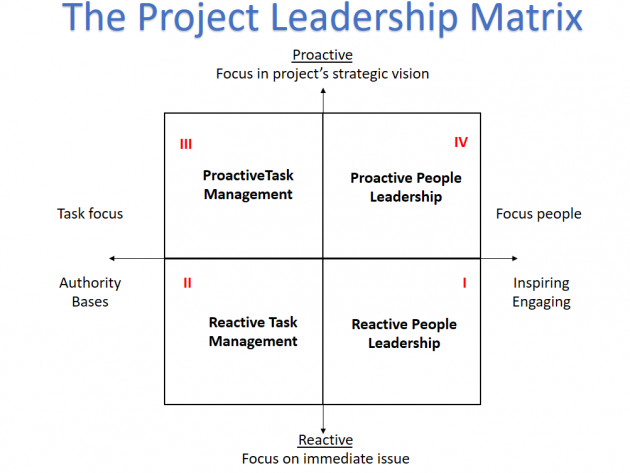
Source: Twproject
2) Efficient Leadership — One of the most crucial responsibilities of project managers is to lead a project to successful completion without micromanaging team members. Also, they collaborate with different teams with varied priorities. This is why the project manager needs to be an excellent negotiator and effective leader capable of influencing colleagues who aren't working under them. While facing an interview for a project management job, you must talk about how you have guided the teams where you didn’t have the power to hire or fire the employees.
3) Risk Management and Problem-solving — Project management job requirements include driving a project toward completion, and you’ll face many obstacles that might delay the process. However, to be a smart project manager your ability to solve such stumbling blocks, predict any potential risks and plan a solution. Highlight your problem-solving approach in a project management interview. If you’ve faced a situation in the past where you anticipated and managed potential threats for accomplishing a project, it would be a bonus.
4) Attention to Detail — An effective way to take a project from start to finish is by strategizing the steps. To map out all the steps seamlessly, you must have a comprehensive understanding of all components required to finish the project successfully as well as the order of those steps. Demonstrate your ability to break down complex goals into manageable chunks in your interview. Proofread whatever you’ve written in the interview process, as it indicates that you pay attention to even the smallest details.
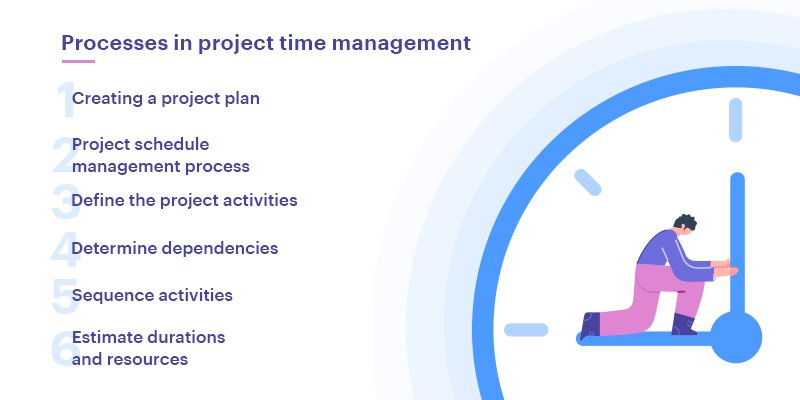
Source: Kissflow
5) Time Management — Effective project management is all about completing projects within their deadlines, making time management skills a must for project managers. Along with managing your schedule, you should be able to manage your team’s time as well.
Turn up for interviews on time, and highlight past experiences where you’ve strived to complete projects within stipulated deadlines while managing colleagues and their timelines.
Do You Really Need a Professional Project Management Training?
In the contemporary dynamic software development industry, a highly skilled project manager isn’t enough. However, earning a certification increases your project management job salary.
In the US, the national average annual salary of a certified project manager is $86,713. Let’s look at the crucial steps that’ll help you select the best project management professional training.
1) The Initial Call — If you have decided to become a project manager by getting a relevant certification, research and explore the day-to-day project management routine and work toward earning a certification.
2) Which Certification Is Better — The Project Management Institute, which is the pinnacle for project management education, offers two certifications:

Source: Scholar99
a. PMP - Project Management Professional Certification: The PMP certification is a gold standard for project management professionals, as it covers the core competencies, latest trends, and emerging practices essential for aspiring project managers.
b. CAPM - Certified Associate in Project Management: CAPM is ideal for beginners, as it equips them with basic knowledge, principles, practices, and processes of effective project management.
After exploring PMP and CAPM, if you are confused about choosing one, remember the key difference between these two is that the PMP certification requires a minimum of 4500 professional hours of experience, while you can earn a CAPM without any prior project management experience.
Assess your chances and determine the certification that best suits you and can prepare you for a lucrative project management job.
3) Resume Professional Training — You can select from various ways to obtain hours of project management training, but make sure you complete a training before attempting the exam. To earn a PM certification you can get trained from many service providers across the world. You can add relevant continuing education classes to your total training hours.
4) Taking the Exam — To succeed, in either PMP or CAPM, you must go through the PMI’s Project Management Body of Knowledge Guide and additional study materials to prepare for the exam. The PMP exam consists of 200 questions and must be taken in an examination center. The CAPM exam has 150 questions and you can take them either offline or online.
5) Maintaining Certification — Passing the Project Management certification exam isn’t enough; you also need to maintain your certification: You need to complete 60 professional development units yearly to retain your PMP certification. For CAPM, you must pass the exam every five years and the exam changes occasionally.
Being a successful project manager is a never-ending process, as the project management field continues to evolve. If you want to stay at the forefront of industry trends, the best alternative is to earn a certification and obtain formal training. The GreyCampus PMP certification Training Course is your best bet.
The training will help you manage projects on system organizations, convert strategic vision into tangible goals, along with maintaining different project obstacles in your project management job. So, if you are ready to kick-start your rewarding project manager journey, acquire a relevant certification and stay ahead of your non-certified peers to achieve project management success.
Want To Become a PMI-certified Project Management Professional? Sign Up for a Bootcamp Now!